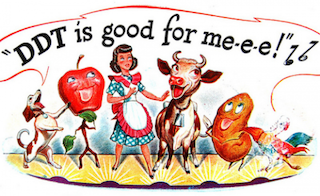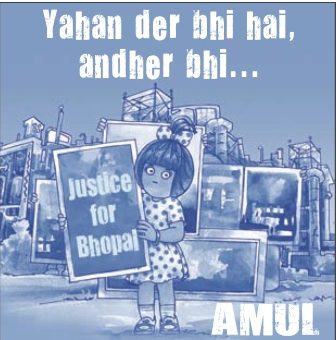
The Silence before the Silent Spring: Narratives of Modernity and the Silences around the Toxicity of Pesticide Use
Pesticide-use and the control of pest populations with synthetic chemicals are a subset of the history of the “modernization” of agricultural practices. This narrative positions pesticides as an antidote to the food supply problem of the growing world population, but it remains eerily silent on the assault on the entire ecosystem that the continuous use of chemicals entails. These moments of silence in history act as heuristic devices that crystallize aspects of historical production that best expose when and where power gets into the story (Trouillot and Carby, 2015, p.15). The dominant narratives and silences around the question of pesticide exposure point towards the locus of power in the story of the development of modern agriculture. (read more...)

